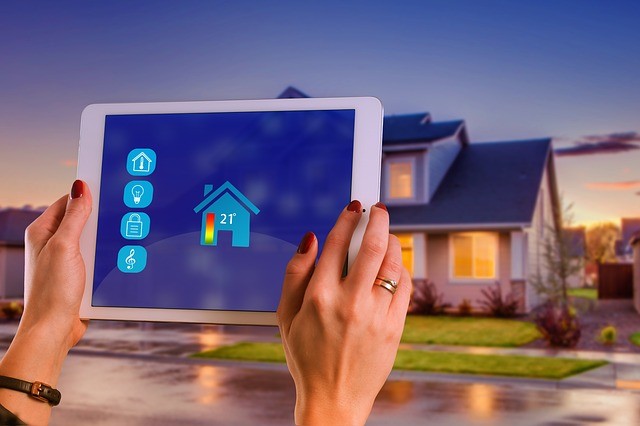What is Smart Home Technology?
Like other technological devices that make our lives easier (e.g., smartphones), smart home technology makes life in our home more convenient and more efficient. With smart home technology, you can control almost everything in your home, right from your smartphone!
Some people are wary of smart technology, mainly because it's still a relatively new thing. Once smart technologies become more common, more and more people will be using these technological devices listed below.
Examples of Smart Home Technologies and Their Benefits
Bluetooth Speakers
This is probably one of the most owned smart home technological devices. They can be found in cars as well as homes, as portable music players, or even voice assistants. The Amazon Echo is probably the most popular device, as it can control other smart devices in your home with a simple voice command.
Home Security Systems, Cameras, and Locks
Home security cameras are another popular smart home feature. Ring is a popular doorbell camera and security system, as it can alert you whenever someone comes within a certain distance of the security camera.
Smart locks are also useful security devices if you've ever asked yourself if you remembered to lock your door when you're away from home. Right from your phone, you're able to lock your doors.
Smart Plugs
Smart plugs are a great, inexpensive way to save energy. They can be connected to almost any appliance in your home, and you can control these with your phone as well. They add an extra layer of security to your home, allowing you to turn on your lights while you're away, tricking intruders into thinking someone's always home.
Thermostats
These regulate the ventilation in your home. They also allow you to set up specific times for the air or heat to come on.
Vivint is a popular thermostat control device that also acts like a smoke detector and carbon monoxide sensor.
Smart Beds
Smart beds track your sleep patterns and can even give you tips on how to get a better night's sleep. This is just one of many smart devices that can be used to monitor health.
Smart Toilets
Automatic toilets use motion sensors to automatically flush. Smart toilets take things a step further. In addition to an automatic flusher, smart toilets are equipped with an automatic lid, self-cleaning technology, and some even have a nightlight. They also use less water and can prevent an overflow of the toilet.
Cons of Smart Home Technology
Unfortunately, there are a few cons to having smart technology in your home. There could be issues with security and privacy, there's a bigger risk for power surges, and since most of these devices use wi-fi, it's necessary to have reliable, high-speed internet. Also with technology constantly evolving, some devices may need to be updated regularly.
Smart Devices and Jobs
Could any of these smart devices potentially eliminate certain jobs? Probably not. Sure there are self-cleaning devices and even robot vacuum cleaners, but these aren't likely to threaten any housekeeping jobs. Baby monitors, like the Nanit Pro, are also not likely to replace baby-sitters. Some things just can't be replaced with artificial intelligence.
On the other hand, smart devices are likely to create more jobs, or at the very least, expand job knowledge. For example, HVAC contractors should be aware of how smart thermometers work, and plumbers should have an understanding of smart toilets. Many fields of work are constantly evolving, so furthering your education is common. So there's not much threat to jobs here, only more educational opportunities as technology evolves.
Conclusion
Just about all new developments in technology have had some resistance from the public, as well as drawbacks. Fortunately, experts are constantly working to improve the mishaps that come with smart devices. Just like our smartphones, smart home technology is likely to become a part of our daily lives.
* This is a contributed article and this content does not necessarily represent the views of sciencetimes.com















